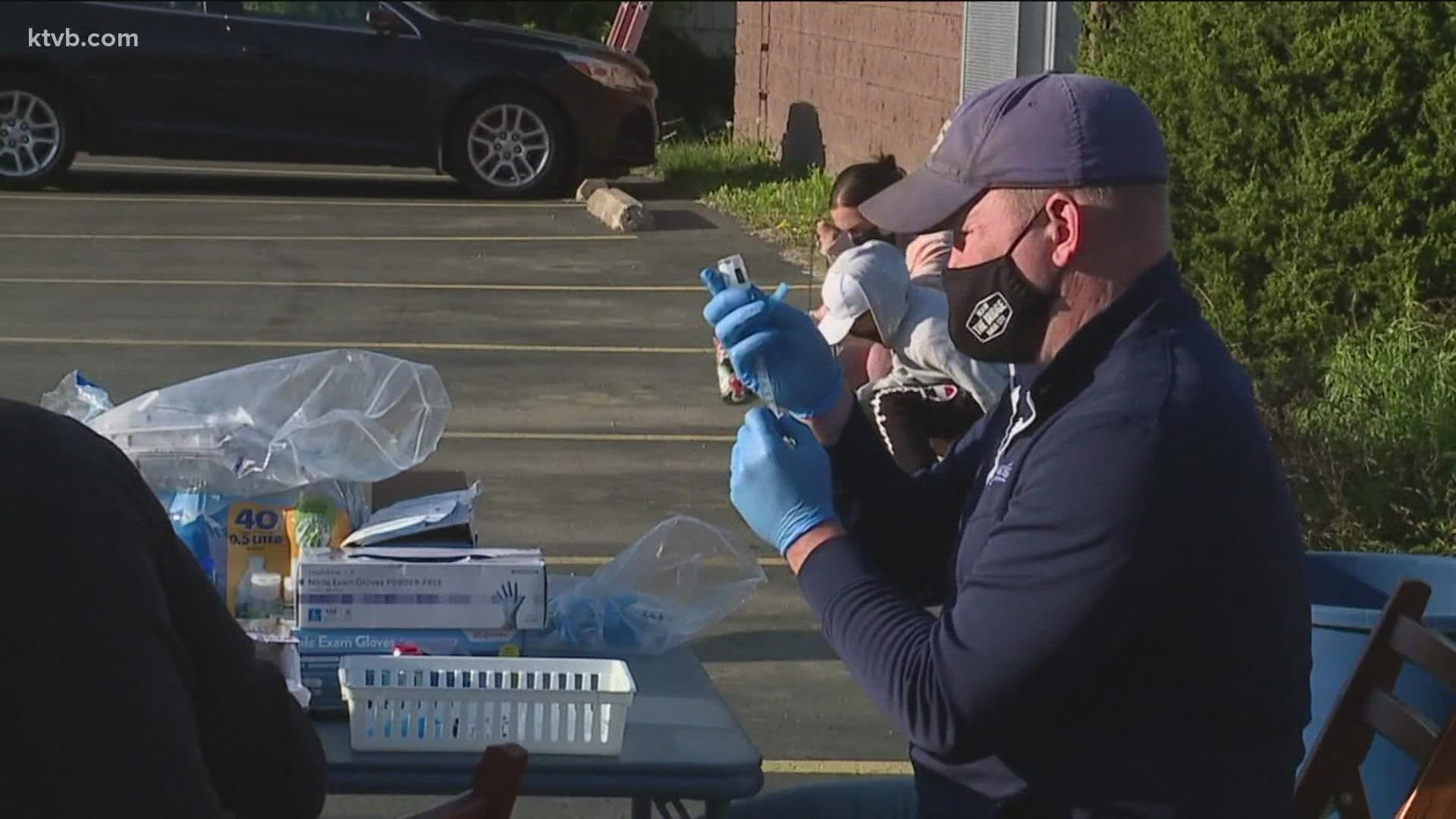BOISE, Idaho — Idaho is reaching a critical point in its battle with COVID-19 as patients with the virus are filling up the Gem State's hospital beds, stretching staff to the limits.
Idaho Department of Health and Welfare Director Dave Jeppesen told reporters on Tuesday that hospitalizations are rising more quickly than last winter and have exceeded the previous peak reported on Dec. 19, 2020. He added that the number of people in intensive care units is at an all-time high, as are the number of people on ventilators.
As of Tuesday, August 31, the latest data from the state shows there are currently 496 people hospitalized with COVID-19, 160 patients in ICUs, 76 of those are on ventilators. Jeppesen said the vast majority of them are unvaccinated.
"We expect this to get worse in the coming days and weeks," Jeppesen said. "This is going to severely impact health care capacity. It will not only impact access for COVID-19 patients, but it will impact access for anyone seeking health care."
Earlier in the day, Idaho Gov. Brad Little announced that he is activating the National Guard and directing hundreds of new medical personnel to help Idaho hospitals overwhelmed with unvaccinated COVID-19 patients. He said this is a last-ditch effort to avoid the first-ever activation of statewide crisis standards of care.
Little said the real solution to this crisis is more Idahoans choosing to receive the safe and effective COVID-19 vaccine.
"Idaho hospitals are beyond constrained," Little said. "Our healthcare system is designed to deal with the everyday realities of life. Our healthcare system is not designed to withstand the prolonged strain caused by a global pandemic. It is simply not sustainable."
The governor said on a daily call with hospitals Tuesday morning that he heard there are only four standard adult ICU beds available in the entire state. At hospitals where they have converted other spaces to be used as contingency ICU beds, those are filling up too.
Little is adding up to 370 additional personnel to assist hospitals with the surge.
St. Luke's Health System announced on Tuesday that due the significant and rapidly increasing cases of COVID-19, it will pause certain elective surgeries and procedures starting on Sept. 1.
"Due to the rapidly escalating COVID surge throughout our community, we are doing all we can to ensure we have capacity to support growing inpatient volumes of both COVID and non-COVID patients. Our hospitalizations due to COVID have risen to levels higher than our peak last fall, including a record number of patients in our ICUs," Dr. Frank Johnson, the Chief Medical Officer of St. Luke's Boise, Elmore, McCall, stated
According the state’s coronavirus dashboard, since the start of the pandemic, there have been more than 2,300 deaths, 220,163 confirmed and probable cases of COVID-19 and 818,464 Idahoans have now received a vaccine, which is around 54 percent of those 12 and older who are eligible to get vaccinated.
Last Thursday, Gov. Little announced that Idaho is opening three antibody treatment centers to preserve hospital capacity. The treatment involves therapeutic medications the governor says are proven to be effective in preventing serious illness of COVID-19.
State epidemiologist Dr. Christine Hahn said Tuesday that the first center to open will be in North Idaho, and that could happen by next week. She says two other centers, one in the Treasure Valley and another in eastern Idaho are still weeks away from opening. She said the antibodies are "not a panacea."
"The vaccination is the best way to prevent COVID, the best way to prevent hospitalization, the best way to prevent death from COVID is by vaccination," Dr. Hahn said. "However, it is one more tool widely available in Idaho, and that is the purpose of this work that we're doing now."
She said the treatment centers are for people who are at high risk of ending up in the hospital. They might be older, have diabetes, a heart or lung condition, or other serious health issue. Once they test positive for COVID, they can go to the treatment center and get an antibody infusion. Hahn says the procedure only takes about an hour and many patients reported rapid improvement afterwards.

